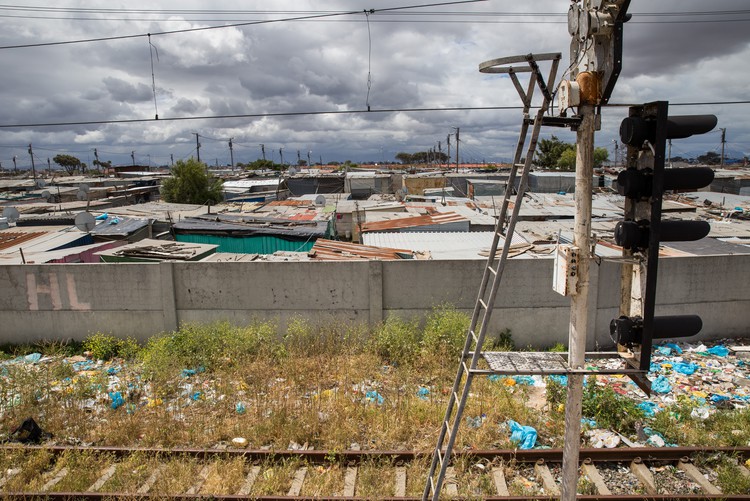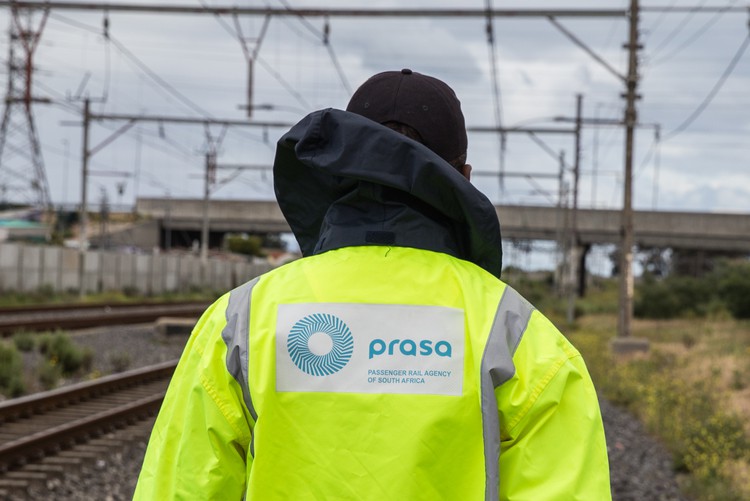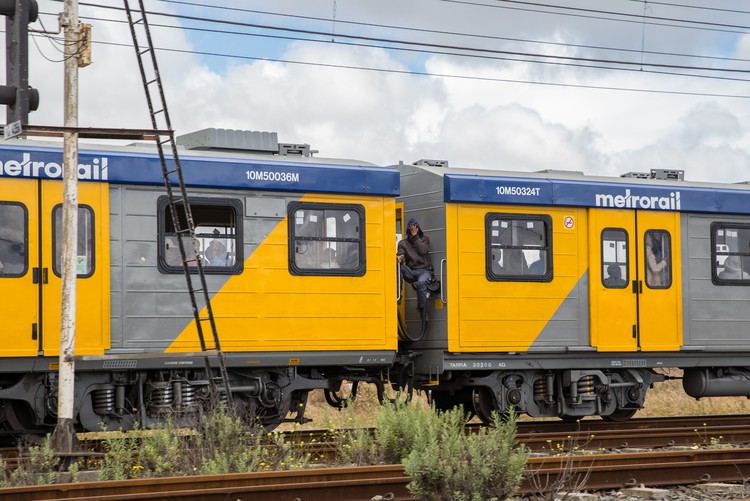PRASA says it’s on top of security problems
But a key claim of the railway company doesn’t match reality
The Passenger Rail Agency of South Africa (PRASA) has responded to the damning letter written by Ernest Hendricks, Regional Security Manager of the Western Cape. In the letter, dated 31 May and addressed to PRASA’s head office in Pretoria, Hendricks described problems with the security system. These problems have led to vandalism, cable theft, train delays and unsafe conditions on trains. GroundUp obtained a leaked copy of the letter and published it on 5 October.
“The leaked letter regrettably creates the perception that management was unaware of the issues listed and that nothing is being done to address them,” Nana Zenani, spokesperson for PRASA, told GroundUp on Friday.
Zenani said PRASA management had already identified the security issues mentioned in the letter “as early as 2015, through audit mechanisms and crime monitoring research”. Based on the findings, Zenani said a “Turn-Around Plan” was established which outlined an 18 to 24 month service recovery plan. She said the plan dedicated R72 million to build fences, walls and install alarm systems in the rail environment.

PRASA’s claims about Nyanga and Bonteheuwel don’t match reality
One of the problems pointed out in Hendricks’s letter was that the railway system from Nyanga to Bonteheuwel to Bishop Lavis, called the “Bonteheuwel Split”, was unprotected. Hendricks complained that this was allowing theft and vandalism, as well as claims for injuries and fatalities. He said PRASA had lost more than R100 million in the past year because of problems in this area.
Zenani responded: “A 24 km wall is currently being constructed between Nyanga Station including the Lansdowne bridge at a cost of R3 million. Both sides of the railway line are in the high priority triangle of Langa-Bontheuwel-Nyanga and will cost a total of R68 million,” Zenani said.
But when GroundUp visited Nyanga station on Monday there was no sign of construction. There were no construction workers, vehicles or materials on the site. There was a one kilometre stretch of wall from Nyanga station to Lansdowne bridge. It had no spikes or barbed wire on top of it. The height of the wall varied from about two to three metres high. GroundUp witnessed one person climb over the wall to get out of the Nyanga station.
GroundUp also visited the infamous “Bontheuwel Split”. About five Railway Police officers were stationed in their car next to the train track. The area was easy to access, with only the regular cement fences as protection. There was an opening in the fence which led to a walkway for people to cross from one side to the other.
The grass around the train tracks was very long, making it easy for people to hide and attack security guards on duty. Two track circuits, which are the machines used to control the train signals, were not enclosed in cages, making it easy for criminals to access.

CCTV for Central line stations
Zenani also said PRASA has already started the tendering process to “lock down Area Central” (better known to commuters as the central line that runs from Cape Town to Langa), as Hendricks had suggested, with proper fencing and security measures.
She said 16 stations have already been fitted with Closed Circuit Television surveillance, with each station consisting of about 30 cameras. She said Metrorail is currently replacing all light current copper cabling with fiber optics to reduce the amount of cable theft in the region.
PRASA disputes size of losses
In the letter, Hendricks listed PRASA’s losses from 1 April 2016 to 31 March 2017 as amounting to about R100 million. Zenani said Hendricks’ list contained “many estimates and not actual costs”. Hendricks said about R55 million had been spent on train casualties but Zenani said that figure was incorrect and was “based on assumptions and the author’s [Hendricks] own understanding of what the maximum potential loss could be”.
Results won’t be seen “overnight”
Hendricks also suggested a “phase out” plan to reduce the use of external security companies over a three-year period. This, he said, would “cut the contract security cost by 66.6% over two years and would allow the internal security department to police the environment and be held accountable to protect the train environment.”
But Zenani told GroundUp that PRASA would not be cutting security staff as it viewed security as a critical part of the business. She said its focus will be on redeploying staff to strategic areas once the fencing, walling and alarm systems had been completed.
She said a follow-up audit will be conducted in the last quarter of the current financial year. “The results will not be overnight but they will form part of the Turnaround Plan for the region”, said Zenani.
Activist says: time to implement those plans
Bruce Baigrie, an organiser with the movement #UniteBehind, said the organisation welcomes the construction of the security wall at Nyanga. He said that while it is insufficient on its own to address the security crisis “it’s clearly a priority measure that would go a long way to protecting commuters and assets in the area”. But, he said, “We’ve yet to see any evidence that this wall is under construction.” He said PRASA had enough plans to alleviate the current crisis. “What is urgently required is implementation” of those plans.

Next: Police call centre workers march to Union Buildings
Previous: Province committed to affordable housing
Letters
Dear Editor
On Tuesday, 17 October 2017, I travelled on Metrorail between Salt River and Cape Town. People are living on Metrorail property along the line and the wall has a gap near the Woodstock station. Metrorail reports again and again that trains are delayed because of cable theft in the Woodstock area.
Since the letter of the Regional Security Manager of the Western Cape, Ernest Hendricks, leaked to the public in early October 2017, Railway Police are again on trains and platforms and ticket checks on trains are carried out again. Experience has shown that this is likely to slacken off again when the dust has settled.
After the burning of trains on Cape Town station on Monday, 12 June 2017, the train service on the Southern Suburbs Line halfway normalised for a week, but then fell back to its previous unreliability. There is clearly a slack attitude within Metrorail which needs to be addressed.
Dear Editor
The truth is those people jumping over the walls are not doing so to vandalize it but they sick and tired of paying so much ticket money whilst most black community train stations have less trains than any station.
The delays and cancellations are an everyday thing that even causes people to lose their jobs, the Khayelitsha trains don’t have windows because people take them out. If you miss one train, you don’t know when you will get another so they squeeze into the one they can to get on.
Prasa is all about money, they don’t care about their commuters. A train will stand in the middle of nowhere for nearly an hour and people will not be notified. They just speak on the speaker "we having technical problems" that we already know.
Dear Editor
I know who I believe and it's not Metrorail. Until the Prasa executives who stole the money or were involved in inflated tenders are put in jail, Metrorail's woes will continue.
© 2017 GroundUp. 
This article is licensed under a Creative Commons Attribution-NoDerivatives 4.0 International License.
You may republish this article, so long as you credit the authors and GroundUp, and do not change the text. Please include a link back to the original article.



